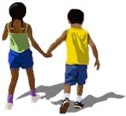




CAUSES of being DIS-TRUSTFUL
-
•I’ve been hurt too much in the past, and I refuse to be hurt again now or in the future
-
•It’s better to live alone for the rest of my life than to risk being hurt again like I was
-
•Everyone’s out to get as much as they can out of you. so avoid them to survive; everyone’s out to get me
-
•As soon as you let your guard down, you’ll be stepped on again - I get no respect from anyone
-
•All men (or women) are dishonest and are never to be trusted - so I can’t trust anyone
-
•I’m never successful at picking partners, so why try again? Anyway, marriage is the pits
-
•There’s no such thing as a healthy relationship
-
•As soon as you care and open up to someone, they’ll always leave you
-
•You can never let your guard down because all hell will break loose.
-
•I’ll never let you know my true feelings again since, if I do open up, I'm afraid you’ll use them against me to hurt me.
-
•There’s no such thing as change in behavior. It’s only manipulation by others to get their way with you.
-
•All reformations are short-lived. If I give in and believe you’ve truly changed, relaxing my defenses, I’m most certainly going to be hurt again once you backslide.
-
•There’s no such thing as a fair employer, generous company or supportive workplace.
RELATIONSHIPS

TROUBLE TRUSTING if WE have:
-
•experienced a great deal of emotional and/or physical abuse and/or neglect
-
•been chronically put down for the way we feel or for what we believe
-
•been emotionally hurt in the past and are not willing to risk getting hurt in the future.
-
•had problem relationships in the past where we were belittled, misunderstood or ignored
-
•experienced the loss of a loved one through death. We can get so caught up in unresolved grief that we’re unable to open ourselves up to others, fearing we’ll be left alone again due to death or abandonment
-
•experienced a hostile or bitter divorce, separation or end of a relationship. We may be unable to believe anyone who opens up to us in a new, committed relationship
-
•been reared in or have lived in an emotionally and/or physically unpredictable and volatile environment
-
•experienced a great deal of pain at the hands of another. Even if the other finally recognizes and accepts the responsibility to change such behavior, the we fear that if we let our guard down, the pain and hurt will begin again
-
•low self-esteem and can’t believe that we’re deserving of the attention, care and concern of anyone. We have problems even trusting the positive, healthy and reinforcing behavior of another who is sincere
-
•experienced a great deal of non-provoked victimization in our lives. We’re unwilling to trust people, situations or institutions for fear of being victimized again
DEFINITION of TRUSTING
-
•Letting others know your feelings, emotions and reactions, and having the confidence in them to respect you and to not take advantage of you.
-
•Sharing your inner feelings and thoughts with others with the belief that they will not spread them indiscriminately.
-
•Placing confidence in others so that they will be supportive and reinforcing of you, even if you let down your mask and show your weaknesses.
-
•Assuming that others will not intentionally hurt or abuse you if you should make an error or a mistake.
-
•The inner sense of acceptance you have of others with whom you are able to share secrets, knowing they are safe.
-
•The sense that things are fine; that nothing can disrupt the bond between you and the other.
-
•The ability to let others into your life so that you and they can create a relationship built on an understanding of mutual respect, caring and concern to assist one another in growing and maturing independently.
-
•The glue or cement of relationships that allows you to need others to fulfill yourself.
-
•Opening yourself up to let others in on your background, problems, concerns and mistakes with the assurance that they will not ostracize you because of these things.
-
•The act of placing yourself in the vulnerable position of relying on others to treat you in a fair, open and honest way.
ATTITUDES that DEVELOP TRUST
-
• Hope in the goodness of mankind:
Without it we become isolated & emotionally stuck. Not
everyone is dangerous or ill-willed. We have to learn to weed!
-
•Faith in the fairness of life:
The “BOOMERANG EFFECT’ - if you are dishonest, mistrusting,
narrow minded...you assume everyone else is too, and you’ll
be more likely to meet up with that type. BUT if you practice
being sincere, kind, respectful, open-minded (not foolish)
people will respond to that & show you their best side too.
-
•A healing environment:
First find a good therapist or healer & recovery groups,
like AlAnon, where they say “We’ll love you until you can
love yourself’. As you heal you can change how you
interact with your significant others which will lessen
blame, accusations & acrimony from all sides.
-
•Reduction of competitiveness:
Jealousy comes from feeling powerless to get your needs
met. As you take better care of yourself there’ll be less
competition, defensiveness and jealousy, reducing the
barriers between you & others, which eventually allows
for mutual trust.
-
•Self-disclosure of negative self-scripts:
‘You’re only as sick as your secrets’ means to share you inner self in SAFE places, to air out you pain. Also, it can be helpful to let important people in your life know how you really feel about yourself, so they can understand where you’re coming from - but only do that if you’re
sure they won’t use it against you!
-
•Taking a risk to be open to others:
Eventually you can risk being vulnerable with some
people, if they’re proven themselves kind & supportive,
so that others can get to know the real you & accept you.
-
•Diminishing our fear:
Many of us will have to ‘act as if’ until we feel safer. We
can’t let fear restrict our interactions & activities. Old
fear from childhood can linger, but ‘new’ fear usually
depend on our negative self-talk, which we can change, &
so feel better. Remember - “If it’s hysterical, it’s
historical”.
-
•Self-acceptance:
To accept yourself you have to know who you are - good
points & weaknesses. There’s NO room for self-hate, only
realistic assessment of ALL you qualities, abilities &
knowledge you’ve gathered. Improved self-esteem makes
it safer to get close to people without fear of abuse or
abandonment.
Donna M Torbico, © 2010





Home • SITE MAP • About Me • ACoA Traits • Article • Books • Boundaries • Co-Dependence • Course • Decisions • Definitions • Effective Responses • Emotions • Family Roles • Friends • Healthy Rules • Inner Child • Links • Love • Recovery • Relationships • Toxic Rules • Trust

Adult-Children of alcoholics & other narcissists

